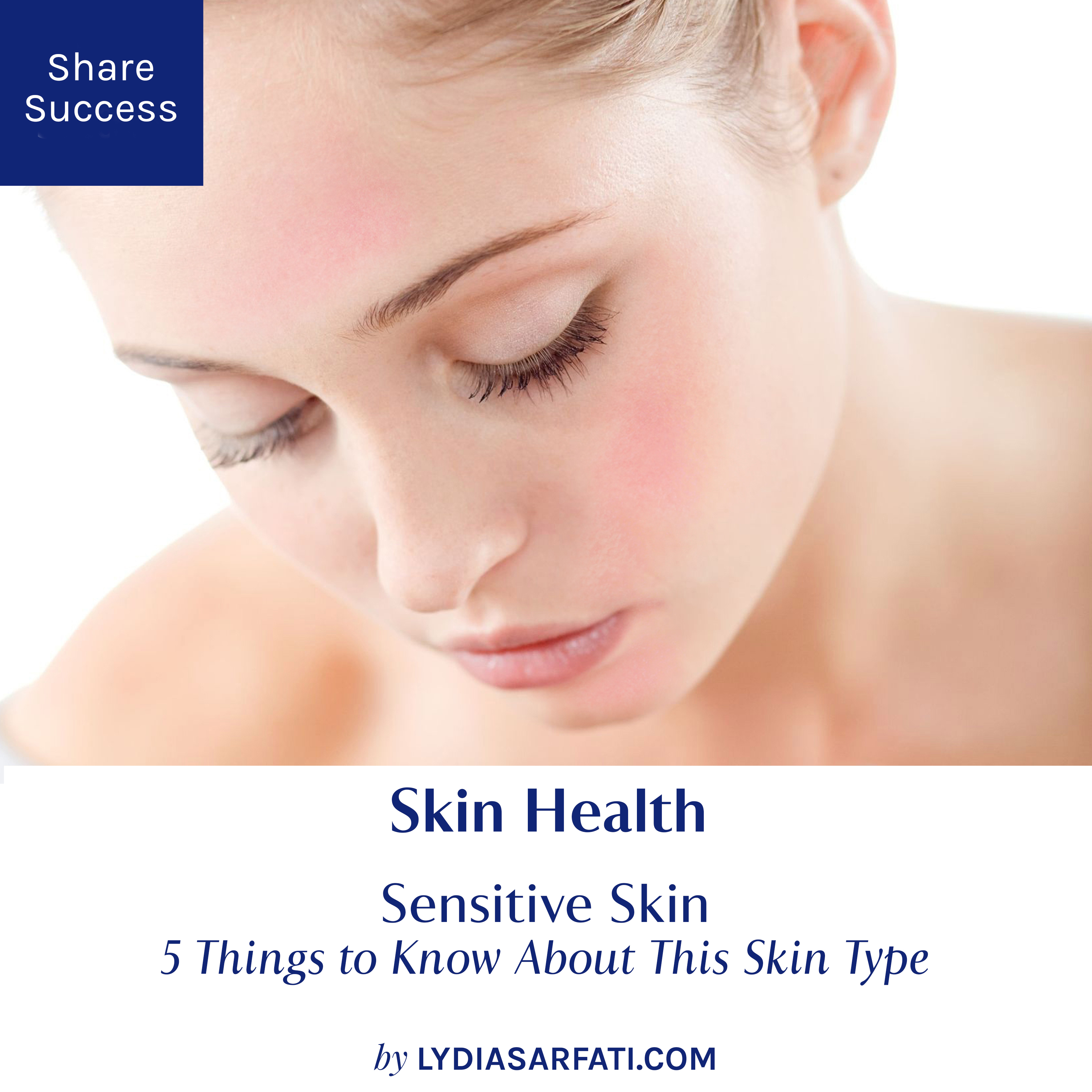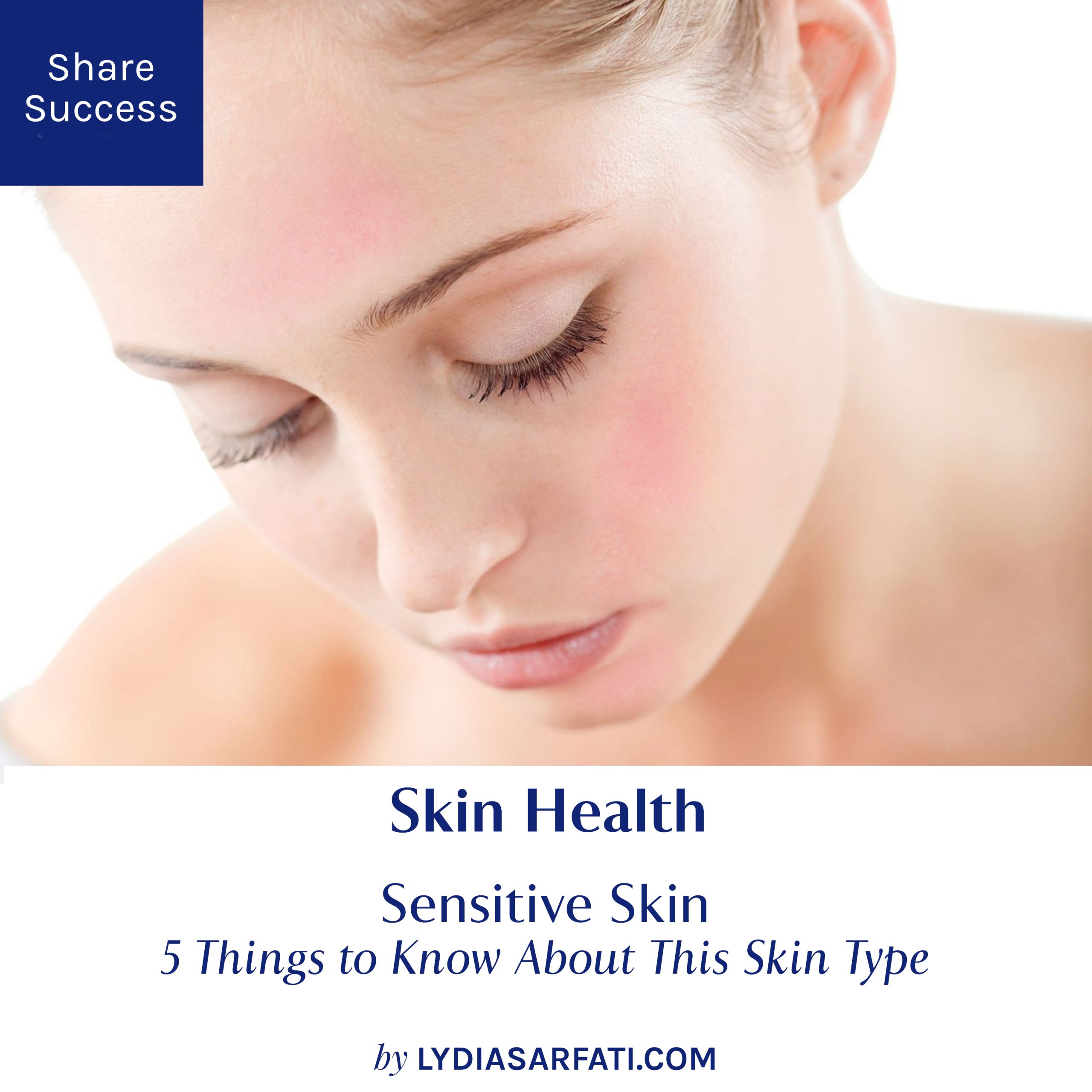
Sensitive skin is a broad term ranging from easily irritated skin to conditions such as eczema and rosacea.
While estheticians cannot diagnose, prescribe or treat skin conditions or diseases it is important to know the following information about this skin type so that you can provide your clients with the best skin care possible.
1. The Signs of Sensitive Skin
Sensitive or reactive skin is characterized by:
- Dry skin or dry patches
- Stinging
- Itching
- Light burning sensations
- Tightness or sensitivity to perfumes
As discussed previously, there are different types of sensitive skin conditions.
As estheticians, it’s important to recognize these different types in order to help you clients care of their skin accordingly.
2. How Pollution Effects Sensitive Skin
In last week’s blog I also shared a list of what causes sensitive skin, which included pollution.
Pollution can be an increasing aggravator of sensitive skin, and one of main reasons sensitive skin reactions are on the rise.
Ambient particulate matter, or APM are airborne materials such as acids and chemicals from vehicle exhaust, industrial emissions and electrical production are also known as pollution.
APM generates free radicals, which increases inflammation and irritation, which accelerates aging in the skin and leaves skin even more vulnerable to damage.
Thus, it’s super important to always finish off a treatment with proper environmental protection. Avoid using chemical sunscreens which work within the skin. Opt for formulas that contain non-chemical UV blockers such as Titanium and Zinc Oxide.
3. How to Use Steam on Sensitive Skin
Heat can make the symptoms of sensitive skin more apparent, making it important to steer clear of using steam in professional facials.
A Dr. Lucas Spray machine is ideal alternative for sensitive skin, as it provides a cool steam and can help soothe and calm the appearance of the skin.
4. How to Exfoliate Sensitive Skin
Sensitive skin can often look dry, flaky and uneven so regular exfoliation is important.
However, sensitive skin should only undergo mild exfoliation.
In fact, sometimes over-exfoliating is the cause of sensitive skin. The skin is a barrier, and if it is compromised, it cannot do its job. The thinner the skin, the more susceptible it can be to irritants.
Aggressive granular exfoliation can create microscopic tears on the skin, making it more susceptible to irritation and inflammation,
Potentially risky exfoliation for sensitive skin:
- Granular exfoliators
- Abrasive Scrubs
- Brushing
- Micro-dermabrasion
- Intense chemical peels
Gentle exfoliation for sensitive skin:
- Hybrid peel – A cream-based peel, like our Biolight® Luminex Mask, that uses AHAS, kaolin clay, and moisturizing seaweed extracts to gently exfoliate the skin.
- Enzymatic Peels – A peel that uses enzymes, like our Vita Cura® Enzymatic Peel, that uses papain enzymes for mild exfoliation.
- Hydrating Masks with Lactic Acid – A mask that will hydrate and gently exfoliate with lactic acid, like our Hydra 4® Mask for sensitive skin.
During each consultation, be sure to ask your clients how, what they are exfoliating, in particular if they are using retinoids or if they have recently had a chemical peel.
5. How to Massage Sensitive Skin
Massage can have a wealth of benefits for the skin. However, you have to be careful when it comes to sensitive skin.
You will notice that your sensitive skin clients can become red and irritated just from touch, so you want to make sure not to over manipulate the skin.
Use gentle massage techniques by using a cooling Silver Ball Massager that provides gentle, consistent pressure without using fingers, helping to cool and calm the appearance of the skin while it aids in the application of beneficial serums and masks.
Watch our facial massage for sensitive skin, utilizing our Silver Ball Massager during our Red-Out® Facial video to learn a step by step of this massage designed for hypersensitive skin. This technique helps work the product into the surface layers of the skin, while helping to cool and calm the appearance of the skin.
Have questions about sensitive skin? Leave a comment below!
*This blog is for informational purposes only and is not intended as medical advice, treatment or diagnosis. Always seek the advice of your doctor or health provider with any questions or concerns you may have about a medical condition.

Thank you for this blog. It is really helpful for me.
Nice information about the Skin type.Thanks for sharing this post, it is very helpful article.
My skin is very sensitive. I constantly seek for the products that suits my skin type but there’s hardly any. This article is good enough and helped knowing my skin bit more. Thanku so much